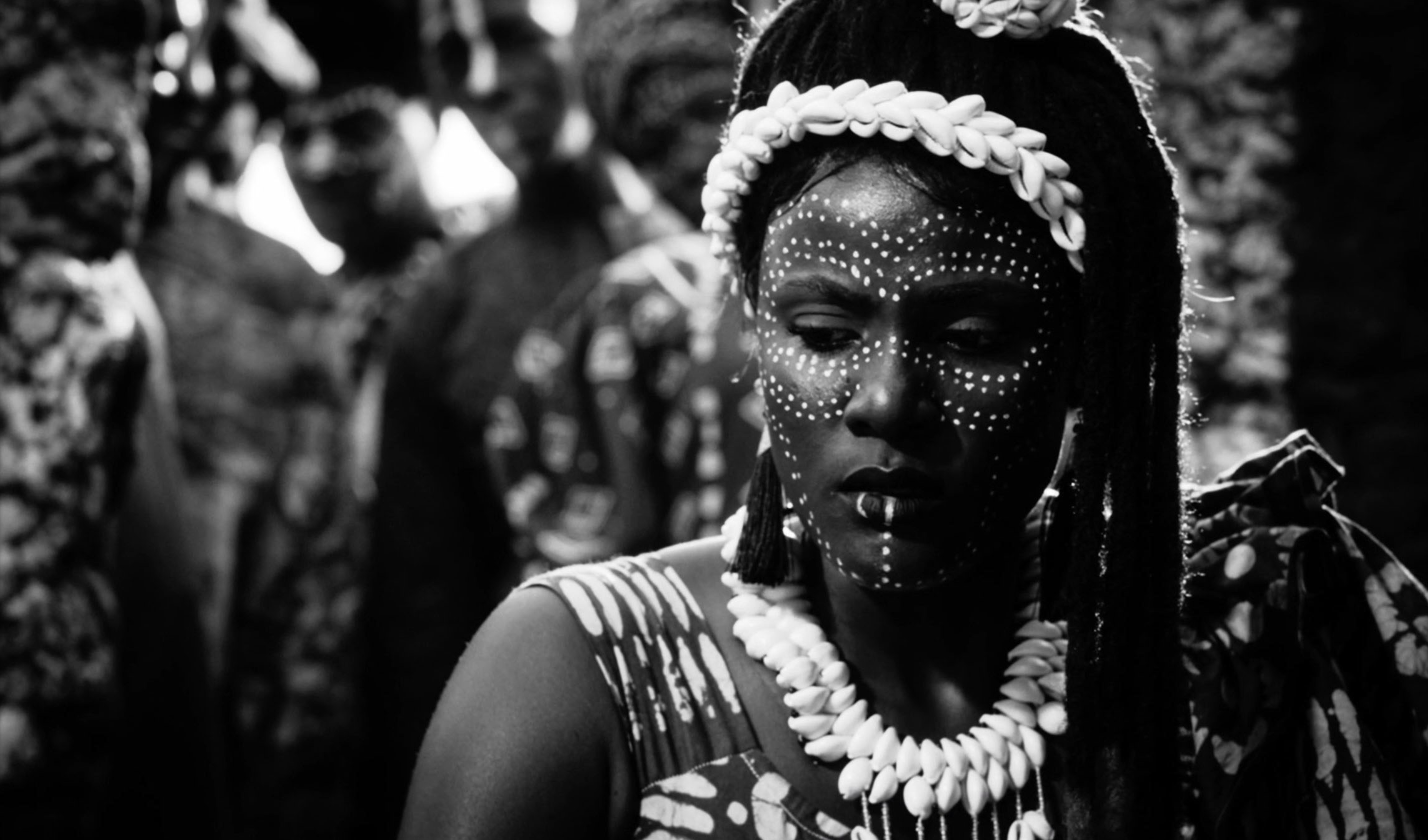‘Mami Wata’ - Sundance
With bold, award-winning cinematography and hypnotic sound, C.J. “Fiery” Obasi immerses the audience in a poetic fable about modernity and tradition.
For background, Mami Wata is a water spirit with a diverse persona widely respected across the African diaspora. She is a figure of wealth and beauty possessing different depictions ranging from being half-fish, half-woman, or a woman with a massive serpent wrapped around herself. Mami Wata emerged between the 15th and 20th centuries with a name that translates to Mother Water in English. As a water spirit, she rules over the seas that brought foreigners to Africa and separated Africans from their homes. Depending on the situation she can be compassionate or as destructive as the high seas. Mami Wata made history at the Sundance Film Festival by being the first film from Nigeria to be accepted to the fest. Set in the isolated Iyi, a village where “fewer assumptions exist” about the notable water spirit, a moment of change is about to come offshore that will threaten the livelihood of the locals.
While Mami Wata may be the title of the film, the real star is the water perfectly captured by cinematographer Lílis Soares through varied compositions and tones. Multiple well-composed black and white shots show the ocean looking textured like glass to water droplets on the skin looking like glitter. The water changes with the time of day to set the mood of the scene almost like it is a character amongst the villager ensemble. There is also Soares brings a sense of magic and myth to the human world through its stylized and eye-catching hair, make-up, and costumes; it feels very dreamlike. There is a sense of confidence founds in the variety of face paint and hairstyles on the different characters.
Beneath the surface of being described as Western Afrikan Folklore, Mami Wata is a story of female authority that emulates Shakespeare. It consists of a variety of characters who suffer from their own responsibilities while idolizing power. The conflict is a power struggle that explores patriarchy v. matriarchy and traditional v. modernity through large-scale oppression. The village of Iyi has a longstanding history of matriarchs ruling over society. The question is raised on the effects of colonization as it erasures tradition but brings the benefit of higher survival rates for future generations that can preserve tradition and culture to continue to pass down.
One of the most powerful matriarchs, Mama Efe, holds the power of being able to communicate directly with Mami Wata. Mama Efe has two daughters Zinwe and Prisca who are her protegees that begin to question her decaying power. Mama Efe continues her practice, but children begin to die while blocking the presence of electricity and hospitals in the village, causing the Iyi people to grow frustrated. This situation puts the legacy of Iyi at risk in its ability to survive for future generations. The people demand modernity as they lose faith in the traditional Mama Efe. A defector enters the narrative who sees an opportunity to seize control through misogynistic and brutal tactics.
Mami Wata is like watching a painting come to life with immaculately sculpted visuals that come together to craft a captivating fairy tale about what happens when traditions don’t adapt to modernity.
